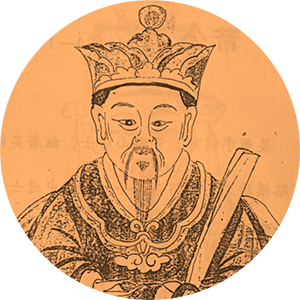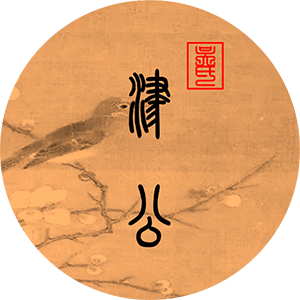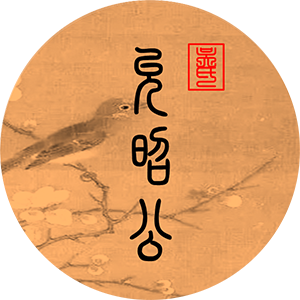
Wu Fu (1104-1183), courtesy name Ming Ke, self-titled Hushan Jushi, was a native of Wuqiao village, Tianshi(田市), Xianju. His grandfather was Yunzhao and his father, Shi Xi. As a young man, he was as solemn and serious as an adult. He studied so hard that he sometimes forgot to sleep and eat. He attained Jinshi degree in the 2nd year of Shaoxing (1132) and started his career as military officer of Yueqing County. He was then transferred to the staff office of the Pingjiang Government. He was also censor of the royal orders (whose responsibility is to censor and compile the royal orders), and later he was promoted to the Secretariat. At that time, Qin Hui was in power, and Wu Fu did not follow Qin Hui, so he was dismissed.
He then served as a judge in the Prefecture in Chuzhou, but when his father died, he returned home to observe a period of mourning. He became the governor of Changzhou at the end of this mourning period and was later reappointed as the governor of Chuzhou. He was also the Censor-in-Chief at the Ministry of Supervising. He presented a memorial (A memorial 奏章 was an official communication to the Emperor of China. They were generally careful essays in Classical Chinese and their presentation was a formal affair directed by government officials. Submission of a memorial was a right theoretically available to everyone from the Crown Prince to a common farmer, but the court secretaries would read them aloud to the emperor and exercised considerable control over what was considered worthy of his time. They were used in imperial China as a means of regulating corrupt local officials who might otherwise have escaped oversight) to the throne to Gaozong of the Southern Song Dynasty requesting that the Emperor exert all possible efforts to sustain the country’s prosperity. After the defeat suffered in the East Huainan Road and the West Huai Road (In Song Dynasty, “Two Huais两淮” refers to the East Huainan Road and the West Huai Road) at the hands of the invading Jin Army, those who favored peace advocated making some concession to Jin in order to retain sovereignty over part of the country. Wu Fu, against all dissenting views, suggested that Emperor Gaozong should make a personal expedition and stay in Jiankang, “in the hope of taking back the Central Plains”. At the end of the Shaoxing period, he was appointed assistant Minister to the Ministry of Revenue and the governor of Wuzhou.
In the 1st year of Emperor Longxing, he became the governor of Shaoxing, and was appointed as military commander of the East Liang Zhe Road. In the first year of Emperor Qiandao, he was appointed as zhixueshi of Fuwenge(敷文阁where the works of Huizong were kept) and Prefect of Lin'an Prefecture. In December, he resumed his post as a minister in the Ministry of Personnel(吏部侍郎). But in the end, he incurred the jealousy of other ministers and was moved to the Prefect of Taiping Prefecture and later Prefect of Longxing Prefecture. He served as the Governor (太守)of six counties in succession. He was an honest and upright official who meted out just rewards and punishments and added many outstanding achievements to his name. The people recognised that his administration was beneficial to them, whilst some officials were inhibited by his prestige. Wu Fu was a filial person, revering the elderly and caring for the young, respecting teachers and valuing education, helping the poor and the needy, and being benevolent in all things. Amongst other notable accomplishments, he invited the eminent monk Xingji to rebuild the Pure Abode of Jingxing Rock.
Wu Fu studied at the county's East Xiren Temple with Chen Yong and Li You, and once launched on their official careers, “each donated a field to the temple in order to allow the temple to accommodate new scholars. In recognition of this, the temple was named three academic temples”. They all put great effort into educating their children, and told them, “If you are to be an official in the future, you should be as careful with official things as you would be with your own personal concerns, and you should always treat official matters as confidential. If necessary, I would rather offend a superior than the people. I have few talents besides the ability never to deceive myself in the slightest degree.”
In the first year of Chunxi, Wu Fu retired to his home town with the title Zhixueshi of Longtuge. He built a pond named Little West Lake in Houli Wu(后里吴), where he devoted himself to writing. He was awarded the title of Founder of Linhai County, with a fiefdom of 2,400 households, and was also given the title of Imperial Minister of State(光禄大夫、少师). He died in the tenth year of Chunxi, at the age of 80, known posthumously as “Kang Su”. He was buried in Shenao, ten li to the west of the county.
The well-known Neo-Confucianist philosopher from the Southern Song Dynasty, Zhu Xi, wrote “Shinto Monument for Duke Wu, Zhixueshi of Longtuge “ for Wu Fu. Wu Fu himself completed five volumes of memorials to the throne and thirty volumes of poetry, now incorporated into the ten volumes of the “Hushan collection湖山集”, compiled within the “ Si Ku Quan Shu(四库全书Complete library in the Four Branches of Literature)“.
Wu Fu had five sons, Wu Jin, Wu Hong, Wu Wo, Wu Ji and Wu Shen. Wu Jin, Jinshi in the5th year of the Qiandao reign (1169), was Chengyilang(承议郎), sub-prefect in Shaoxing Prefecture, and originally a military officer in Guangde, then in Xinghuajun. Wu Hong, Jinshi in the eighth year of the Chunxi reign (1181), was appointed assistant to Xuanjiaolang, a minister of Dinghai Prefecture, and later transferred to Jiaxing Prefecture, where he became a provincial governor in eastern Zhejiang. Wu Wo, Chengshilang (承事郎), became deputy magistrate of Yiwu and Tonglu Counties, before being transferred to Shaoxing Prefecture. Wu Ji(吴洎) served as Chengfenglang(承奉郎), deputy magistrate of Yongkang, a transport officer in Liangzhe. Wu Shen was appointed as Jiangshilang (将仕郎), and Tiling(提领)in the Ministry of Revenue in Leqing, Wenzhou. Wu Fu had twenty-eight grandchildren, of whom Wu Jin's son, Wu Ji(吴机), was Congshilang(从事郎). He became Minister of Transport (运判) and Tijv(提举) of Huaidong in Zhenzhou, and finally advisor to an Imperial Minister of State(宣奉大夫). Wu Jin’s other son, Wu Pu, was appointed to the post of Chengmu Lang(承务郎), and became deputy Magistrate of Yin County. Ultimately he served as Tongzhilang(通直郎). Wu Fu was Jinshi in the second year of Shaoxing (1132); Wu Qian, Wu Fu's cousin, was Jinshi in the second year of Jianyan (1128), and served as magistrate in Yanzhou and Chuzhou, eventually becoming an Imperial Minister of State(朝奉大夫). Wu Yong, Wu Fu's cousin, was Jinshi in the fifth year of Shaoxing (1135), and eventually became Xuanjiaolang(宣教郎) and magistrate of Xian.
The Wu family's three successive success (1128, 1132, 1135) in the highest imperial examinations brought great fame and reputation to the Wu family. Wu Qian's son, Wu Jun, was Jinshi in the 24th year (1154), and became a teacher at Nan Wai Muzongyuan(南外睦宗院); Wu Fu's eldest son, Wu Jin, was Jinshi of the second grade in the 5th year of Qiandao (1169), and Wu Xiang, Wu Yong's son, was Jinshi of the third grade in the same list (1169). Wu Fu's second son, Wu Hong, was Jinshi in the 8th year (1181) of the Chunxi. One place in Kaiyuan Township, Xianju was thus named “Zhe Gui”(折桂home of the civil examination laurel winners). Zhegui Bridge,15km to the west of the county is similarly named according to the story of the Wu family’s success in the highest imperial examinations.
家谱传记
地方志
国史记载



